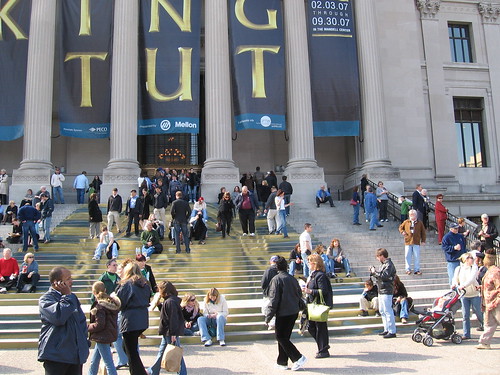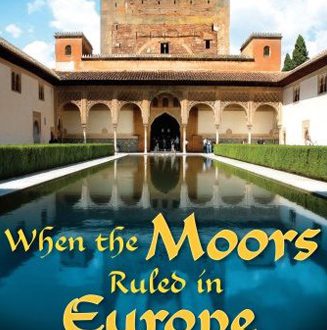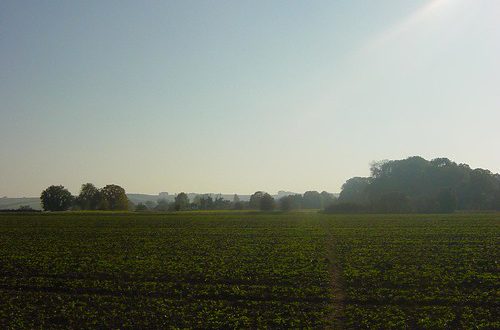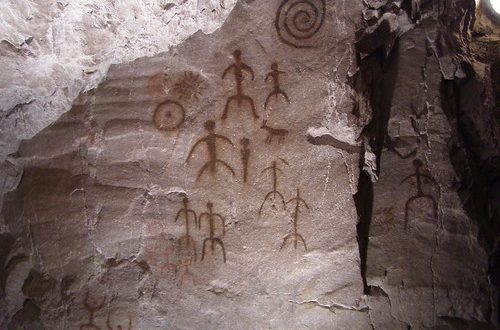Next June, Cleopatra comes to Philadelphia. Not content with staging the most attended exhibition in American history, Tutankhamun And The Golden Age of The Pharaohs, the city’s Franklin Institute will play host to a world of treasures from the palaces, cities and monuments of the last queen of Egypt, entitled Cleopatra: The Search for the Last Queen of Egypt. One of the biggest characters of the ancient world, Cleopatra stole the hearts and minds of leaders, and oversaw her 3000-year-old empire’s destruction.
With excavations for her tomb (watch the video) ongoing at Taposiris Magna, can Cleopatra capture the American public like King Tut continues to? What is America’s fascination with Egypt, and how difficult is it to bring some of the empire’s freshest artefacts across the Atlantic? Heritage Key speaks to Troy Collins, the museum’s Marketing Senior VicePresident, about the upcoming show.
HK: How long has the concept of the Cleopatra exhibition been in the pipeline?
TC: This idea has been in the hopper for at least the last 24 months.
HK: How did it begin?
 TC: It’s interesting because the conglomeration that is making up the producing group, and that includes American Exhibitions International, the Egyptian government and Zahi Hawass, National Geographic and now this French underwater explorer called Franck Goddio, really came together. And because of our success in premiring the King Tut exhibit and still maintaining the world attendance record for that exhibition we were the first organisation they approached when they had the concept in terms of launching this tour.
TC: It’s interesting because the conglomeration that is making up the producing group, and that includes American Exhibitions International, the Egyptian government and Zahi Hawass, National Geographic and now this French underwater explorer called Franck Goddio, really came together. And because of our success in premiring the King Tut exhibit and still maintaining the world attendance record for that exhibition we were the first organisation they approached when they had the concept in terms of launching this tour.
The exhibition from a storyline standpoint is beginning to take place, and it really focuses on Cleopatra herself, her beauty, the legend behind her history. And then it expands into the stories of Alexandria then, and recovering the ruins of Alexandria now as well as several underwater cities and ruins and artefacts that have been recovered from those underwater sites in the bay. Then it further goes on to talk about the search for the tomb, how that’s going, how it’s done and all the mysteries that surround that search. And an actual dig site for the little ones who will be touring the exhibition.
HK: How easy has it been to liaise with the Egyptian authorities?
TC:You know what they’ve been wonderful people, they’ve been wonderful partners. Everybody has their ways of doing business. We tried to experiment with King Tut in 2007 and it worked out beautifully, and we’re thrilled to be partners with the same folks again because we know we’re going to get a quality product, a beautiful product and a historically and culturally significant product. And we know that our audiences here will greatly appreciate it when we bring it.
HK: How did the Franklin Institute first get involved with King Tut? It’s not a traditionally ancient history-based museum.
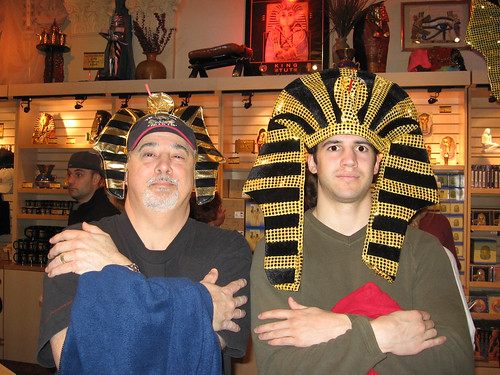 TC: Traditionally we’re a science museum. However, we’re the most visited museum in the Commonwealth of Pennsylvania here in the United States, and we feel an obligation to do two things: one is to inspire the learning of science and technology, and certainly bringing in an ancient history exhibit and developing scientific concepts and interactives that show the progression of science is within the scope of our mission. And secondly, as the most visited museum in Pennsylvania it’s really our duty to provide a forum for these types of exhibitions. We’re one of the few museums with the physical means to do that.
TC: Traditionally we’re a science museum. However, we’re the most visited museum in the Commonwealth of Pennsylvania here in the United States, and we feel an obligation to do two things: one is to inspire the learning of science and technology, and certainly bringing in an ancient history exhibit and developing scientific concepts and interactives that show the progression of science is within the scope of our mission. And secondly, as the most visited museum in Pennsylvania it’s really our duty to provide a forum for these types of exhibitions. We’re one of the few museums with the physical means to do that.
HK: Were you surprised with the attendance for the King Tut exhibit?
TC:I wasn’t here then but I know we expected big things out of it. But I think I’d be speaking in turn when I say I think everyone was very pleased how well the exhibition ended up doing. So when you look at the statistics there its 1.2million people coming to the King Tut exhibit, and for the museum in total visitation was about 1.7million so everybody was very very happy!
HK: Why do you think America is so besotted with Ancient Egypt?
TC: We do a lot of focus groups and audience testing, and there are some timeless topics that exist and Egypt continues to be one of them. Especially when you look at a nation that’s only 200-and-something years old, compared with Europe and Asia which have such a deeper history, Egypt has always held a mystique here. The creation of the pyramids, the ancient history, its ties to Biblical history there’s a lot of fascination. And there’s simply a thirst for more knowledge.
HK: Do you ever see it dissipating?
TC: I don’t see it dying down. It has been part of American culture and American pop culture, in television and motion pictures for generations now. And I think with each new generation of children especially if ancient history is covered in their curriculum, people will continue to find it fascinating and mysterious. If we can get young people engaged in that interest and get them passionate about learning, then we’re happy to do that.
HK: Do you think Cleopatra can bring in the same crowds as King Tut?
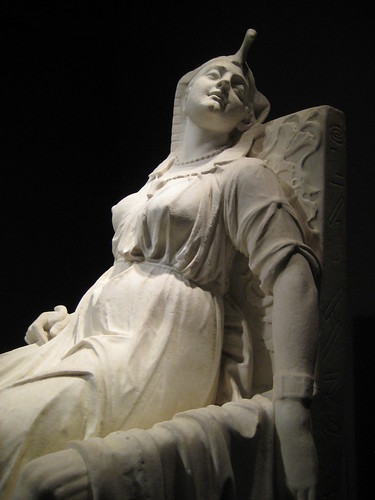 TC: I don’t know and we’re still in the process of developing our audience expectations. I don’t know if it will perform at the level of King Tut, but we certainly expect an extremely strong show.
TC: I don’t know and we’re still in the process of developing our audience expectations. I don’t know if it will perform at the level of King Tut, but we certainly expect an extremely strong show.
HK: What is the draw with Cleopatra?
TC: It’s the mystique, it’s the legend, it’s her beauty, it’s her history, it’s the story with Antony, it’s the story of what the Roman Empire did following her reign that was so different than what happened after King Tut’s death. It’s all of those factors intertwined.
HK: There are still quite a few projects ongoing at Alexandria and Taposiris Magna. Have you got any contingency plans if something springs up between now and exhibition time?
TC: In terms of something going wrong? Or something going right?
HK: Something going right!
TC: Yes, we’ve thought about it. And unlike King Tut, where the expectation was the majority of the artefacts would be found in a single location, we all know that the expectation here is not that, and that the search is a lot more challenging and could go on for a very long time. So listen we’re keeping our fingers crossed! And we’re prepared to implement any surprise discoveries that might be found. But on the other hand we’re also being practical and saying the likelihood of that happening is not great.
HK: Do you hope this and King Tut will get the ball rolling with the Franklin presenting the ancient world to the city’s people?
TC: Absolutely. And in many ways that’s continued: we had an exhibition here which was another worldwide premiere of Galileo’s equipment, where once again we were able to tie ancient history to science.
HK: Many of the Tutankhamun treasures have been held back this time around because Egypt says they’re too fragile to travel. Do you think it’s bad for world heritage, or do you think it’s good that they are staying in their home country?
TC: Listen I’m not the Egyptian government or Zahi. And as someone who isn’t an expert on these artefacts I would certainly say it’s the Egyptian government’s right to do what’s best to protect that material. On the other hand, regardless of the reason, yes it is a shame that other people won’t be exposed to those objects. But there could be very good reasons I’m not familiar with. And obviously their care, protecting and stewardship is paramount.

